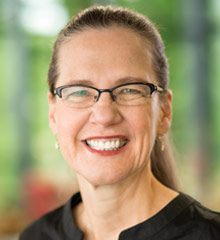Commentary on 2 Corinthians 12:2-10
What is the true spiritual power?1
What constitutes true spiritual authority? How do we distinguish true from false teachers and prophets? Who should we allow to influence us, and whose authority can we trust? And how do we respond when spiritual abuse is taking place? These questions set a stage for interpreting 2 Corinthians 12:2–10. They are as relevant in our time as they were in Paul’s day.
- Countering fools
Our passage is located within Paul’s ironic “fool’s speech,” where he speaks sarcastically as a “fool” as he criticizes the way certain “super-apostles” are manipulating the Corinthians with their special claims to authority. Disguising themselves as “ministers of righteousness,” these super-apostles were turning the Corinthians into their “slaves”—preying on and taking advantage of them, putting on airs around them, shaming them and perhaps even abusing them physically (2 Corinthians 11:12–21). Paul is frustrated with the Corinthians because they seem so ready to submit to these individuals.
By contrast, Paul describes apostolic ministry as a transparent disclosure of truth accessible to everyone’s conscience before God. The proclamation that “Christ is Lord” makes us “slaves” to one another “for Jesus’ sake”: it cannot be used—without enacting a contradiction—to deceive, control, or manipulate others (2 Corinthians 4:1–6).
- Credentials and hardships
In the rest of the speech, Paul addresses what probably were the ways these super-apostles sought to establish their authority. He begins by rejecting two common claims to authority in the ancient world: those based on having a particular religious, ethnic, or even “Christian” heritage (2 Corinthians 11:22–23) and those based on the mastery of adversity (2 Corinthians 11:22–29).
The one experience Paul does boast of is his experience in Damascus of being let down in a basket in order to evade persecution. What he boasts of here is not his prowess over suffering, but the help he has received from God—through others—in a time of weakness (2 Corinthians 11:32; Acts 9).
- Visions and revelations
In addition to their credentials and capacity to master adversity, the super-apostles were probably also using their spiritual experiences as a basis for claiming authority over the Corinthians. In the ancient world, attesting to spiritual journeys was a popular way of claiming divine validation for one’s authority.
Paul rooted his own call as an apostle not in a human source but in “a revelation of Jesus Christ” he had experienced 14 years prior (Galatians 1:12; 2:12). In this passage he refers to his experience of having attained “the third heaven,” another way of speaking about Paradise. Yet Paul is not interested in boasting about these experiences. He does not even know—or care—whether they were “in the body” or “out of the body” experiences (2 Corinthians 12:1–4). Earlier in the letter, he has already made clear that whether we are “at home with the body” or “at home with the Lord,” our aim is simply “to please God” (2 Corinthians 5:9).
Paul grounds his authority in public, accessible truth: “what can be seen in me or heard from me” (2 Corinthians 12:6). He appeals to an authority far more trustworthy—and accessible to others—than his own fleeting experiences: “the one who raised the Lord Jesus,” who “will raise us also with Jesus, and will bring us with you into his presence” (2 Corinthians 4:14). And God’s grace cannot be contained but continually “extends to more and more people” (2 Corinthians 4:15).
- Power in weakness
So if claims based on lineage, the mastery of hardship, or having special visions and revelations do not count, then how do we discern true spiritual authority? Paul describes a “thorn in the flesh” he has been given—so that he will not have too high an opinion of himself—in order to explain what true spiritual power is all about.
We have no idea what this “thorn” actually was, but it probably was the kind of “slight momentary affliction” Paul refers to earlier in the letter (2 Corinthians 4:17). In 2 Corinthians 4, Paul draws on imagery from psalms of lament to describe his apostolic life: being afflicted but not crushed, perplexed but not driven to despair, persecuted but not forsaken, struck down but not destroyed (2 Corinthians 4:8–9). Like the psalmists, Paul mentions these difficulties not to highlight his mastery over adversity—or to let others know how much he has suffered—but rather to stress that God is our source of rescue amid all that we experience.
Even though Paul has asked the Lord three times to take away his pain—his “thorn in the flesh”—the Lord’s only response has been: “My grace is sufficient for you.” The sufficiency of God’s grace is directly related to the point that “power is made perfect in weakness” (2 Corinthians 12:9). The word for “perfect” (teleitai) in this verse is perhaps better translated as “reaches full maturity.” We mature as we recognize our weaknesses—our limits—and learn to rely ever more deeply on the power of Christ dwelling in us.
Only by relying on Christ and not ourselves (or any other human authority, for that matter) can we become “powerful” (dunatos) in the sense of being a source of succor for others (2 Corinthians 12:10). And this kind of spiritual power never seeks to dominate or control others, or claim superiority. Like a nursemaid or a parent, Paul’s goal as an apostle is simply to assist others as they stand in the truth of their own conscience before God—where they “test” and “examine” for themselves what it means to have Christ “in” their lives (2 Corinthians 13:5–8).
So what constitutes true spiritual power and authority? How do we distinguish true from false claims to authority? Our claim to authority has only one source: God’s rescuing us in our weakness in Jesus through the Spirit. Not only are appeals to that authority always public and accessible to everyone’s conscience, but they can only be used—without enacting a contradiction—for one purpose: building up one another so that we grow together, amid all that we experience, into the truth of our full maturity as human beings in Christ (2 Corinthians 10:8; 12:19; 13:10).
Notes
- Commentary previously published on this website July 5, 2015.


July 7, 2024